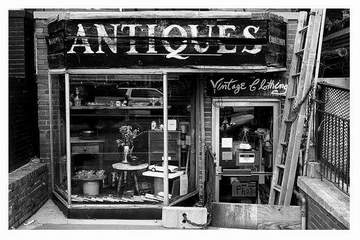 Universal Pictures (sometimes called Universal City Studios or Universal Studios for short), a subsidiary of NBC Universal, is one of the six major movie studios.
Universal Pictures (sometimes called Universal City Studios or Universal Studios for short), a subsidiary of NBC Universal, is one of the six major movie studios. Founded in 1912 by Carl Laemmle, it is one of the oldest American movie studios still in continuous production. On May 11, 2004, the controlling stake in the company was sold by Vivendi Universal to General Electric, parent of NBC. The resulting media super-conglomerate was renamed NBC Universal, while Universal Studios Inc. remained the name of the production subsidiary. In addition to owning a sizable film library spanning the earliest decades of cinema to more contemporary works, it also owns a sizable collection of TV shows through its subsidiary NBC Universal Television Distribution. It also acquired rights to several prominent filmmakers' works originally released by other studios through its subsidiaries over the years.
Carl Laemmle's entry into the motion picture production began in the industry's infancy. In 1905, while Laemmle searched for a place to open a clothing store in Chicago, he stumbled onto a line of people waiting to see a nickelodeon. Intrigued by the popularity of moving pictures, Laemmle changed careers and opened The White Front Theater. In one month Laemmle recouped his investment and opened a second theater with Robert Cochrane, a business associate. Laemmle expanded further with the Laemmle Film Service, which became the largest movie distributor in the country. By 1909 Laemmle and Cochrane were grossing $10,000 a week doing business in the Midwest and in Canada.
Laemmle and Cochrane's production of motion pictures stemmed from a dispute with the Motion Picture Patents Company, which had attained monopolistic power at the time. Finding himself with no motion pictures to exhibit, due to the rift with the patent company, Laemmle decided to make movies himself. The first effort of the Independent Motion Picture Company (IMP) involved a one-reel film entitled Hiawatha. Eventually, production would increase to an average of one film per week. The Universal Film Manufacturing Company was formed in 1912 when IMP merged with five other companies; Laemmle became president and Cochrane vice-president of the new concern.
Universal offered a variety of motion picture packages which allowed an exhibitor to show a different film every day. The Complete Service Plan, for example, included a two-reel comedy, a serial, and a feature film. In 1913 the company began to offer a regular newsreel titled The Universal Animated Weekly. Universal's first full-length feature film, Traffic In Souls (1913), grossed $0.5 million; the movie's real significance was in innovative editing and plot lines which gave the impression of simultaneously occurring events, a concept never before conveyed in film.
Universal expanded its movie making capacity with the opening of Universal City in 1914. Laemmle acquired the 230-acre Taylor Ranch north of the Hollywood Hills for $165,000, envisioning a studio as a city. Laemmle's promotion of the grand opening of Universal City, aimed primarily at theater owners, attracted thousands of people from the general public as well. The promotion stated that everyone should come to see how movies are made 'to make the people laugh or cry or sit on the edge of their chairs the world over.' The public was so fascinated with film making that Universal City offered organized tours for 25 cents apiece, which included a box lunch, and the company erected bleachers near the sets. About 500 people visited Universal City daily until the advent of sound movies required enclosed stages.
In 1915 Universal produced over 250 films, primarily two reel shows and serials, but also feature length films of over 70 minutes long. The company classified films according to budget and status. A Red Feather film and a Bluebird film received low and midrange budgets, respectively. A Jewel film involved a large budget and prestigious stars of the time, such as Harry Carey, Carmel Myers, and Rudolph Valentino, and directors such as Erich von Stroheim. John Ford helped to define the genre of American Westerns in the numerous films he directed after joining Universal in 1914.






